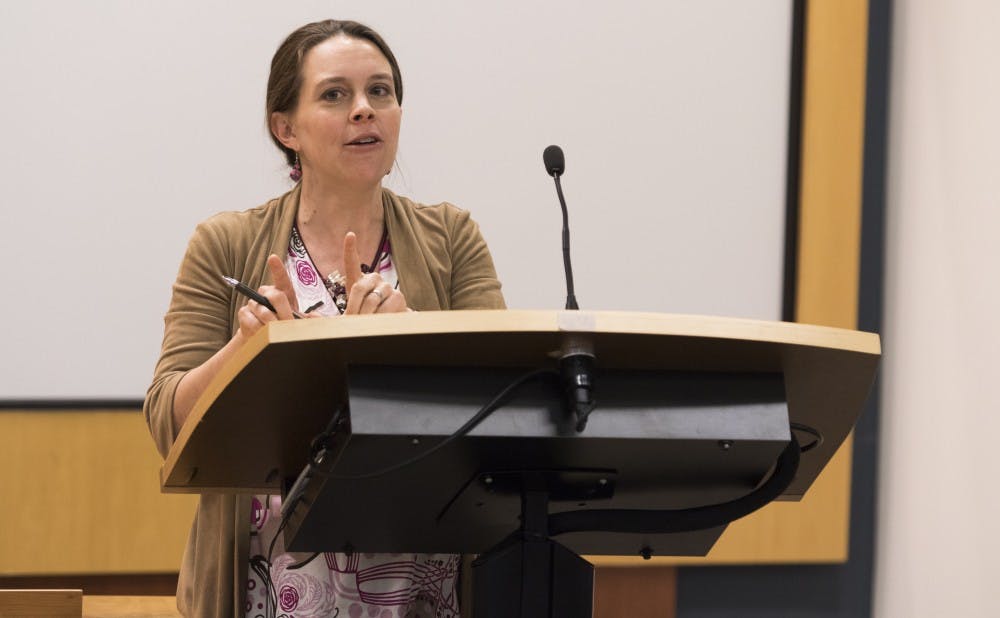Politics has become a battleground, with few areas under more scrutiny than the status of presidential judicial appointments.
Carrie Severino—Trinity '99 and chief counsel and policy director of the Judicial Crisis Network, a conservative political organization—presented her takeaways from the confirmation of Justice Neil Gorsuch to the Supreme Court at a lecture Thursday. The event was sponsored by the Duke Student Chapter of The Federalist Society.
Vacancies on the Supreme Court during an election year are quite rare, with the most recent vacancy prior to 2016 taking place in 1988. Because there was little precedent regarding the situation, Severino believed the empty seat had an impact on the outcome of the election by making Supreme Court nominations a bigger issue for many voters.
Then, after the election, when the Judicial Crisis Network began to look for supporters from both parties, Severino said they first looked at Democratic senators who would be up for reelection in 2018 in states that voted for President Trump.
“From our perspective, we thought, ‘Okay, there are a lot of opportunities here to reach out and get some Democrats on board,'" Severino said. “However, it became very clear early on that that was not going to be the case.”
Severino used this case to transition into a larger discussion about the entire nomination and confirmation process. She said the process is riddled with personal attacks, partisanship and other roadblocks that cause concern because they slow down the process. There are currently 144 vacancies on federal courts, and in the eight months since Trump took office, only six appointees have been confirmed.
Ernest Young, Alston and Bird professor of law at Duke and another speaker at the event, also said these vacancies are a cause for concern because most of the work is done in the lower courts. Indeed, the Supreme Court typically hears about 80 cases a year, whereas the lower courts hear tens of thousands. So far, Young said he approved of Trump’s choices of appointees.
“I don’t know if President Trump is making America great again,” Young said. “But he is definitely making the judiciary great again.”
However, Young said the nomination and confirmation process itself is “nasty” and “deeply traumatizing.” He said this occurs largely as a result of the continued—and growing—polarization of the political sphere.
“Political polarization turns ordinary political disagreements and legal disagreements into moral crusades so that you just have to paint the people on the other side as unacceptable, unethical, bad people,” Young said. “I think that’s really dangerous.”
There are those, however, who are able to embrace the idea that people can disagree without needing to personally attack the other party. First-year law student Chris Smith attended the lecture and said that although he disagreed with Severino’s political philosophy, he can still respect her work.
“I’m pretty different from her politically—I would say I’m pretty progressive,” Smith said. “Obviously, she’s highly intelligent and really experienced, so it was interesting to hear from a different perspective. I didn’t necessarily agree with everything, but certainly she was very well-read, very informed and very smart.”
Moving forward, Severino said she hopes that the nomination process moves away from the personal attacks that have characterized much of the recent political sphere. She said she believed that the recent removal of the filibuster for Supreme Court nominations will speed up confirmations, but that other customs, such as the allowance of 30 additional hours for debate, still need reform.
Get The Chronicle straight to your inbox
Sign up for our weekly newsletter. Cancel at any time.

